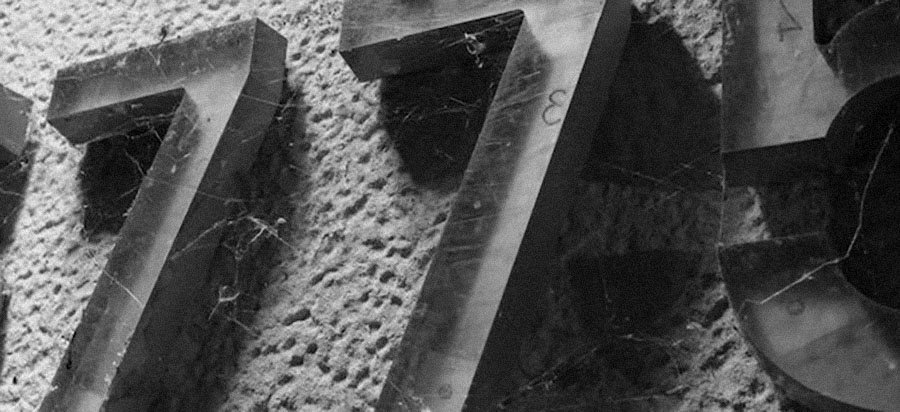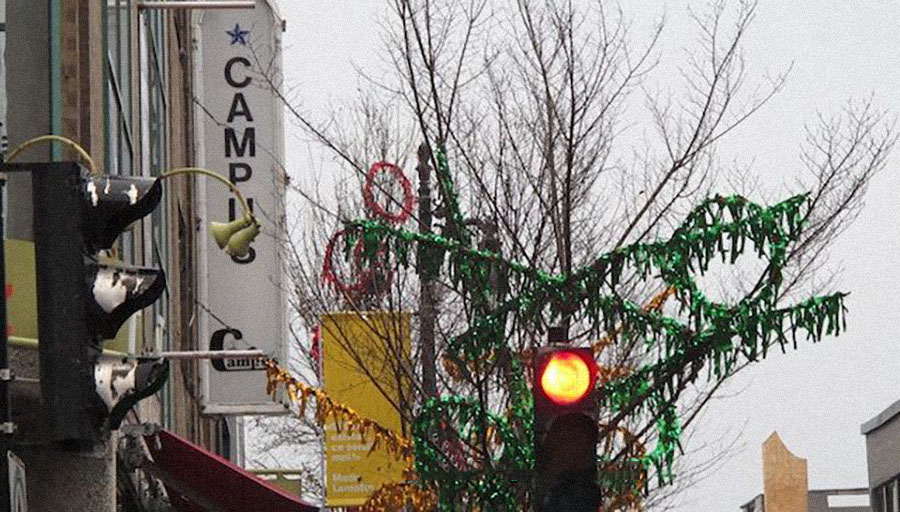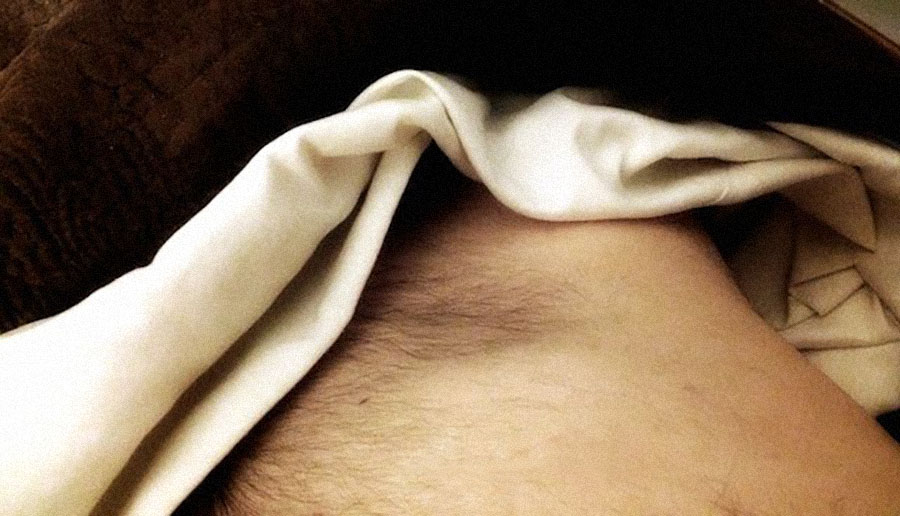
Of the time we have left
December 5, 2012
Completed the reading of [Illness](http://www.amazon.ca/Illness-Havi-Carel/dp/1844651525/ref=sr_1_1?s=books&ie=UTF8&qid=1354713260&sr=1-1), from Havi Carel. I had heard this woman in a news report on a rare orphan disease. As a young philosophy teacher, she believed she was in perfect health, master of her means, was athletic, and ate well. And then, suddenly, she ran out of breath. From the first race, she often found herself in the back, suffocated by effort. The diagnosis was not long in coming: [Lymphangioléiomyomatose](http://fr.wikipedia.org/wiki/Lymphangiol%C3%A9iomyomatose) (or LAM), which is characterized by a gradual choking of the lungs by mysterious cysts. Known treatment: none. Chance of survival: three, five, ten years...
Her book starts at the beginning, almost word for word what she said in the report as if she had recounted or relived *ad nauseam* this episode of her life, her reactions of fear, anguish, and amazement at the observation. In a short time, she was equipped with an oxygen bottle. From a "living" person, she has become a "being on probation."
The originality, if I may say so, of this book is that it is written by a philosopher used to "discourses" about existence. Why do we live, why do we die, what is the right way to live? These questions, which revolve around the quest for meaning, were quickly confronted by Carel’s brutal reality of a degenerative disease. This is followed, over the pages, by a phenomenological description of the disease, a reflection on our attitude towards our body. The author talks about Merleau-Ponty, Descartes, Heidegger, Hegel, Nietzsche, and, finally, Epicure.
Many will recognize themselves in this first part of the book, those who have quickly been deprived of their physical abilities (through disability or illness) and those who are slowly aging. Our body is our ship. Through it, our existence moves in a universe of possibilities, in reality, projecting itself into an ever promising future. When everything is going well, our minds leap, anguish like a teenager, twists with pain for difficulties that he can nevertheless overcome. But when the body is no longer there, walls quickly cloud the horizon, and it is the shock. The real problem remains death...
Havi Carel, like thousands of people suffering from an incurable disease, had to mourn her death quickly. Her clear and intelligent mind did the rest. It accompanied her in a refactorization of her existence. This is what she tries to describe in the second part of the book. That second part could appear a less original reading. What is a disease? What does it involve? Why the medical profession is so unprepared to treat the sick person other than by repeated diagnosis, the attitude of so-called normal (functional) people towards diseases, the need for the affected person to change his or her existential horizon and eventually find a new way of living happily.
This leads us to the third part, which focuses on purpose, death. What is happiness in life, what is death? How can we overcome the fear of death? How does this fear come about? This is when reading becomes very zen. The author’s conclusions quickly echo what Epicure said (which she quotes extensively): death does not belong to us. When we are dead, we are not. When we are alive, we are not dead. The past is only a reinterpretation, the future that fabulation, the present, paradoxically evanescent, is our only certainty and our sole hold on reality. Buddha and this is the same thing.
The quality of happiness cannot be measured in quantity either. When you are young, you think that happiness will come, since the landscape of the future is so broad. All those who have reached more than two-thirds of their life know that these valleys, long very wide, have been carved out. The water flows, old-fashioned, at the bottom of narrower ravines. There seems to be only one meandering, sometimes silent passage left. When you are struck by a diagnosis like LAM, you see the regions of opportunity transforming at first sight. A person who dies suddenly sees nothing, does not experience the tragedy of abandoning existence.
In conclusion, this book is beautiful, simple. The author may repeat herself a little too often, because, in the end, she may not have much to say. Everything would have been reported, wouldn’t it, about that. It must be noted that, despite this understanding, no one is listening. The merit of this book, therefore, is to bring the subject of life and death back to the table, so we could confront it with our modernity. A book that invites us to revisit what the wise and sober Epicure had to teach so long ago.
Have we not learned anything since then?
Her book starts at the beginning, almost word for word what she said in the report as if she had recounted or relived *ad nauseam* this episode of her life, her reactions of fear, anguish, and amazement at the observation. In a short time, she was equipped with an oxygen bottle. From a "living" person, she has become a "being on probation."
The originality, if I may say so, of this book is that it is written by a philosopher used to "discourses" about existence. Why do we live, why do we die, what is the right way to live? These questions, which revolve around the quest for meaning, were quickly confronted by Carel’s brutal reality of a degenerative disease. This is followed, over the pages, by a phenomenological description of the disease, a reflection on our attitude towards our body. The author talks about Merleau-Ponty, Descartes, Heidegger, Hegel, Nietzsche, and, finally, Epicure.
Many will recognize themselves in this first part of the book, those who have quickly been deprived of their physical abilities (through disability or illness) and those who are slowly aging. Our body is our ship. Through it, our existence moves in a universe of possibilities, in reality, projecting itself into an ever promising future. When everything is going well, our minds leap, anguish like a teenager, twists with pain for difficulties that he can nevertheless overcome. But when the body is no longer there, walls quickly cloud the horizon, and it is the shock. The real problem remains death...
Havi Carel, like thousands of people suffering from an incurable disease, had to mourn her death quickly. Her clear and intelligent mind did the rest. It accompanied her in a refactorization of her existence. This is what she tries to describe in the second part of the book. That second part could appear a less original reading. What is a disease? What does it involve? Why the medical profession is so unprepared to treat the sick person other than by repeated diagnosis, the attitude of so-called normal (functional) people towards diseases, the need for the affected person to change his or her existential horizon and eventually find a new way of living happily.
This leads us to the third part, which focuses on purpose, death. What is happiness in life, what is death? How can we overcome the fear of death? How does this fear come about? This is when reading becomes very zen. The author’s conclusions quickly echo what Epicure said (which she quotes extensively): death does not belong to us. When we are dead, we are not. When we are alive, we are not dead. The past is only a reinterpretation, the future that fabulation, the present, paradoxically evanescent, is our only certainty and our sole hold on reality. Buddha and this is the same thing.
The quality of happiness cannot be measured in quantity either. When you are young, you think that happiness will come, since the landscape of the future is so broad. All those who have reached more than two-thirds of their life know that these valleys, long very wide, have been carved out. The water flows, old-fashioned, at the bottom of narrower ravines. There seems to be only one meandering, sometimes silent passage left. When you are struck by a diagnosis like LAM, you see the regions of opportunity transforming at first sight. A person who dies suddenly sees nothing, does not experience the tragedy of abandoning existence.
In conclusion, this book is beautiful, simple. The author may repeat herself a little too often, because, in the end, she may not have much to say. Everything would have been reported, wouldn’t it, about that. It must be noted that, despite this understanding, no one is listening. The merit of this book, therefore, is to bring the subject of life and death back to the table, so we could confront it with our modernity. A book that invites us to revisit what the wise and sober Epicure had to teach so long ago.
Have we not learned anything since then?

